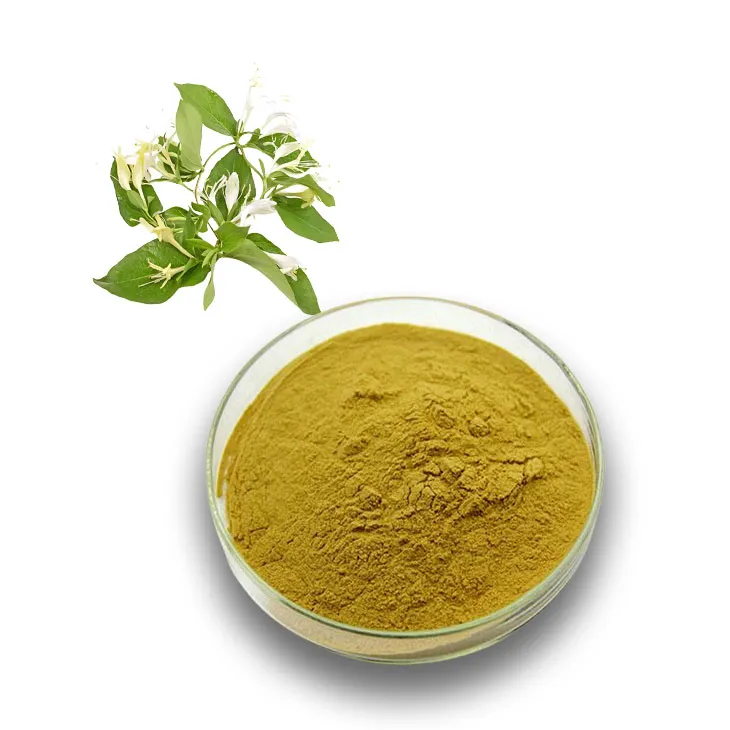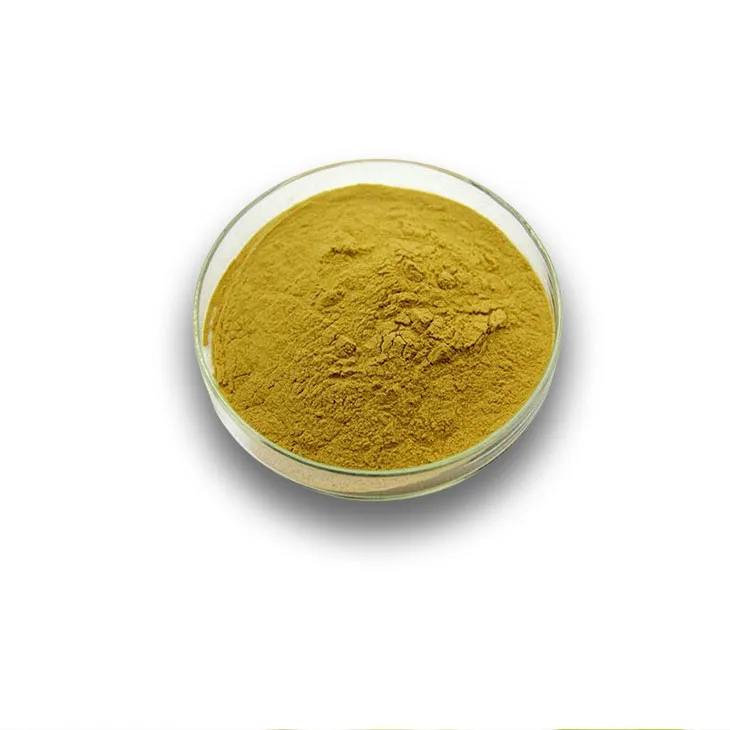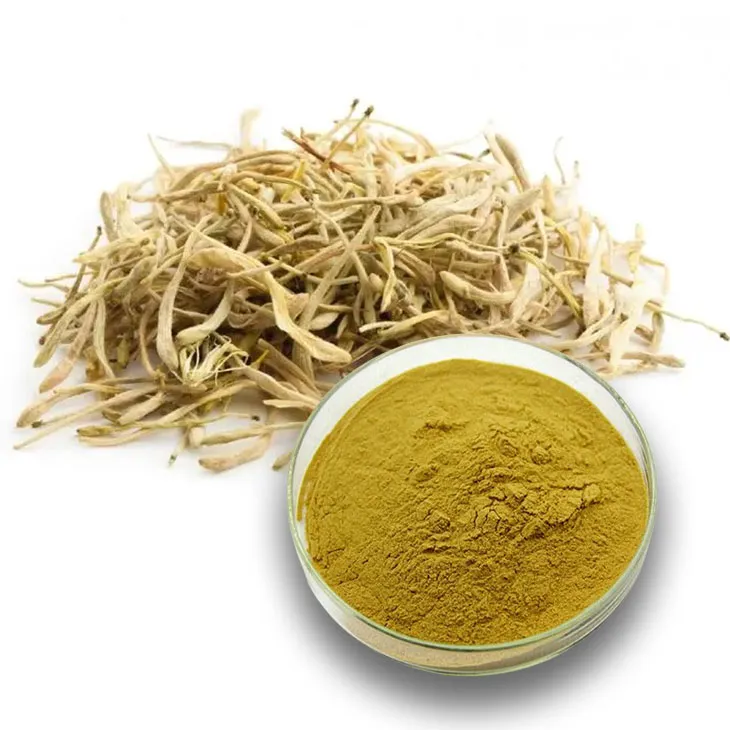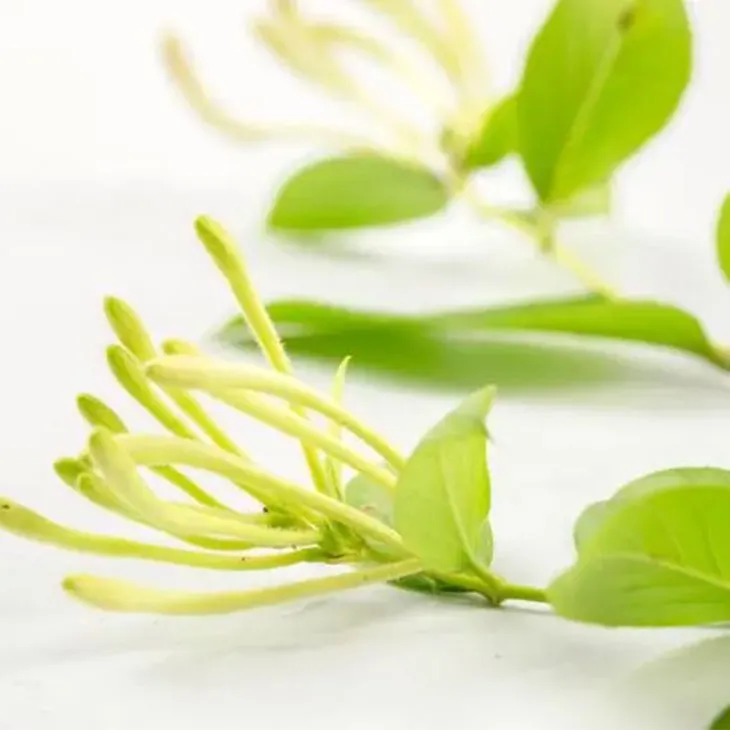- 0086-571-85302990
- sales@greenskybio.com
The best honeysuckle pollen in nature.
2024-12-02

Introduction to Honeysuckle Pollen
Honeysuckle Pollen, sourced from the alluring honeysuckle flowers in nature, is indeed a remarkable substance. It is not just a simple part of the natural world; rather, it is a complex and valuable entity. The very existence of Honeysuckle Pollen is intertwined with the beauty and functionality of the honeysuckle plant itself.

The Beauty of Honeysuckle Flowers
The honeysuckle flowers, from which the pollen is collected, are a sight to behold. Their delicate petals and alluring colors add to the charm of the natural landscape. These flowers often have a sweet fragrance that attracts not only humans but also various pollinators such as bees and butterflies. The beauty of the honeysuckle flowers is not just for aesthetic pleasure; it is also an indication of the rich and diverse ecosystem that surrounds them.

Health Benefits of Honeysuckle Pollen
Antioxidant Effects
One of the most significant aspects of honeysuckle pollen is its antioxidant properties. Antioxidants play a crucial role in maintaining human health. They are substances that can prevent or slow down damage to cells caused by free radicals. Free radicals are unstable molecules that are produced in the body during normal metabolic processes as well as due to external factors such as pollution and radiation. Honeysuckle pollen contains bioactive compounds that act as antioxidants. These compounds can scavenge free radicals, thereby reducing oxidative stress in the body. This, in turn, can have a positive impact on various aspects of health. For example, it can help in slowing down the aging process. As we age, our bodies are more prone to oxidative damage, which can lead to wrinkles, loss of skin elasticity, and various age - related diseases. The antioxidant effect of honeysuckle pollen can potentially counteract these effects, keeping our cells healthier for a longer time.
Respiratory Health
Honeysuckle pollen has also shown potential in improving respiratory health. Respiratory problems are common in modern society, often caused by factors such as pollution, allergens, and infections. The bioactive compounds in honeysuckle pollen may have anti - inflammatory and antimicrobial properties. Inflammation in the respiratory tract can lead to symptoms such as coughing, wheezing, and shortness of breath. By reducing inflammation, honeysuckle pollen can potentially relieve these symptoms. Additionally, its antimicrobial properties can help in fighting off respiratory infections. For example, it may be effective against certain bacteria or viruses that cause respiratory illnesses. This makes it an interesting candidate for natural remedies for respiratory problems.
Anti - Inflammatory Properties
Another important aspect of honeysuckle pollen is its anti - inflammatory properties. Inflammation is a natural response of the body's immune system to injury or infection. However, chronic inflammation can be harmful and is associated with many diseases, such as arthritis, heart disease, and diabetes. The bioactive compounds in honeysuckle pollen can modulate the body's inflammatory response. They can either reduce the production of inflammatory mediators or enhance the body's natural anti - inflammatory mechanisms. This can help in reducing overall inflammation in the body, potentially preventing or managing various inflammatory - related diseases.

The Science behind Honeysuckle Pollen
From a scientific perspective, honeysuckle pollen is a complex mixture of various bioactive compounds. These compounds are the key to its health - promoting properties. Scientists have been studying honeysuckle pollen to understand its composition and how these components interact with the human body. Through advanced analytical techniques, they have identified a range of substances such as flavonoids, phenolic acids, and polysaccharides in honeysuckle pollen. Flavonoids, for example, are well - known for their antioxidant and anti - inflammatory effects. Phenolic acids also contribute to the antioxidant capacity of the pollen. Polysaccharides, on the other hand, may have immunomodulatory effects, which means they can regulate the immune system. Understanding these components and their functions is essential for further exploring the potential of honeysuckle pollen in health promotion.

Interest from Herbalists and Health - Conscious Consumers
Honeysuckle pollen has attracted the attention of herbalists and health - conscious consumers alike. Herbalists, with their in - depth knowledge of natural remedies, recognize the potential of honeysuckle pollen in traditional medicine. They may incorporate it into herbal formulations for various health conditions. Health - conscious consumers are also increasingly interested in natural products that can support their well - being. Honeysuckle pollen, with its natural origin and potential health benefits, fits well into this trend. These consumers are often looking for alternatives to synthetic drugs and are more inclined towards products that are perceived as natural and safe. However, it is important to note that while honeysuckle pollen shows promise, more research is needed to fully understand its efficacy and safety.
Collection and Processing of Honeysuckle Pollen
The collection of honeysuckle pollen is a delicate process. It requires careful handling to ensure the quality and purity of the pollen. Honeysuckle flowers are usually in full bloom when the pollen is collected. Specialized tools may be used to gently extract the pollen from the flowers without causing damage. Once collected, the pollen needs to be processed properly. Processing may involve steps such as drying, sieving, and packaging. Drying the pollen helps in preserving it for a longer time. Sieving is done to remove any impurities or debris. Packaging should be done in a way that protects the pollen from moisture, light, and air, which can degrade its quality over time.
Precautions and Considerations
While honeysuckle pollen has potential health benefits, there are also some precautions and considerations. First, some people may be allergic to honeysuckle pollen. Allergic reactions can range from mild symptoms such as sneezing and itching to more severe reactions like difficulty breathing and anaphylaxis. Therefore, it is important for individuals with known pollen allergies to be cautious when using products containing honeysuckle pollen. Second, the quality and purity of the pollen are crucial. Poor - quality pollen or pollen contaminated with other substances may not provide the expected health benefits and may even be harmful. Third, although honeysuckle pollen is a natural product, it should not be used as a substitute for medical treatment without proper medical advice. For example, if someone has a serious respiratory disease, they should follow the treatment plan recommended by their doctor while also considering the potential benefits of honeysuckle pollen as a complementary approach.
Conclusion
In conclusion, the best honeysuckle pollen in nature is a fascinating substance with a great deal of potential. Its beauty as part of the honeysuckle flower is just the beginning. The health benefits it offers, from antioxidant effects to potential improvements in respiratory health and anti - inflammatory properties, make it an interesting area of study. The scientific understanding of its composition and the interest from herbalists and health - conscious consumers further highlight its importance. However, more research is needed to fully unlock its potential and to ensure its safe and effective use. With proper precautions and continued exploration, honeysuckle pollen may one day play a more significant role in promoting human health and well - being.
FAQ:
What are the main health benefits of honeysuckle pollen?
Honeysuckle pollen contains bioactive compounds. It may have antioxidant effects, which can slow down the aging process. It also has potential in improving respiratory health and reducing inflammation.
How is honeysuckle pollen collected?
Honeysuckle pollen is collected from the honeysuckle flowers in nature. However, the specific collection methods usually require professional techniques to ensure the purity and quality of the pollen.
Why is honeysuckle pollen considered a storehouse of health benefits?
It is considered a storehouse of health benefits because it contains various bioactive compounds. These compounds play different roles in promoting human well - being, such as antioxidant, anti - inflammatory and beneficial for respiratory health functions.
Is honeysuckle pollen suitable for everyone?
While honeysuckle pollen has many potential health benefits, it may not be suitable for everyone. People with certain allergies to pollen or related substances may have adverse reactions. It is always advisable to consult a healthcare professional before consuming it.
How can honeysuckle pollen be consumed?
Honeysuckle pollen can be consumed in different ways. It can be made into supplements in the form of pills or capsules. Some people may also add it to certain foods or drinks, but this should be done following proper safety and dosage guidelines.
Related literature
- The Nutritional and Medicinal Value of Honeysuckle Pollen"
- "Honeysuckle Pollen: A Natural Source of Health - Promoting Compounds"
- ▶ Hesperidin
- ▶ citrus bioflavonoids
- ▶ plant extract
- ▶ lycopene
- ▶ Diosmin
- ▶ Grape seed extract
- ▶ Sea buckthorn Juice Powder
- ▶ Beetroot powder
- ▶ Hops Extract
- ▶ Artichoke Extract
- ▶ Reishi mushroom extract
- ▶ Astaxanthin
- ▶ Green Tea Extract
- ▶ Curcumin Extract
- ▶ Horse Chestnut Extract
- ▶ Other Problems
- ▶ Boswellia Serrata Extract
- ▶ Resveratrol Extract
- ▶ Marigold Extract
- ▶ Grape Leaf Extract
- ▶ blog3
- ▶ blog4
-
The best lemon juice powder in nature.
2024-12-02
-
Organic Vitamin K2 Powder Suppliers
2024-12-02
-
Bulk purchase of L - tyrosine.
2024-12-02
-
Vitamin K2 Manufacturers
2024-12-02
-
100% Pure Natural Rutin.
2024-12-02
-
Chinese Citrus Bioflavonoid Suppliers.
2024-12-02
-
Gynostemma pentaphyllum extract
2024-12-02
-
Polygonum multiflorum extract
2024-12-02
-
Pueraria Lobata Extract
2024-12-02
-
Chia Seed Powder
2024-12-02
-
Mangosteen extract powder
2024-12-02
-
Grape Leaf Extract
2024-12-02
-
Feverfew Extract
2024-12-02
-
Chasteberry Extract
2024-12-02
-
Phyllanthus Emblica Extract
2024-12-02
-
Mango flavored powder
2024-12-02





















